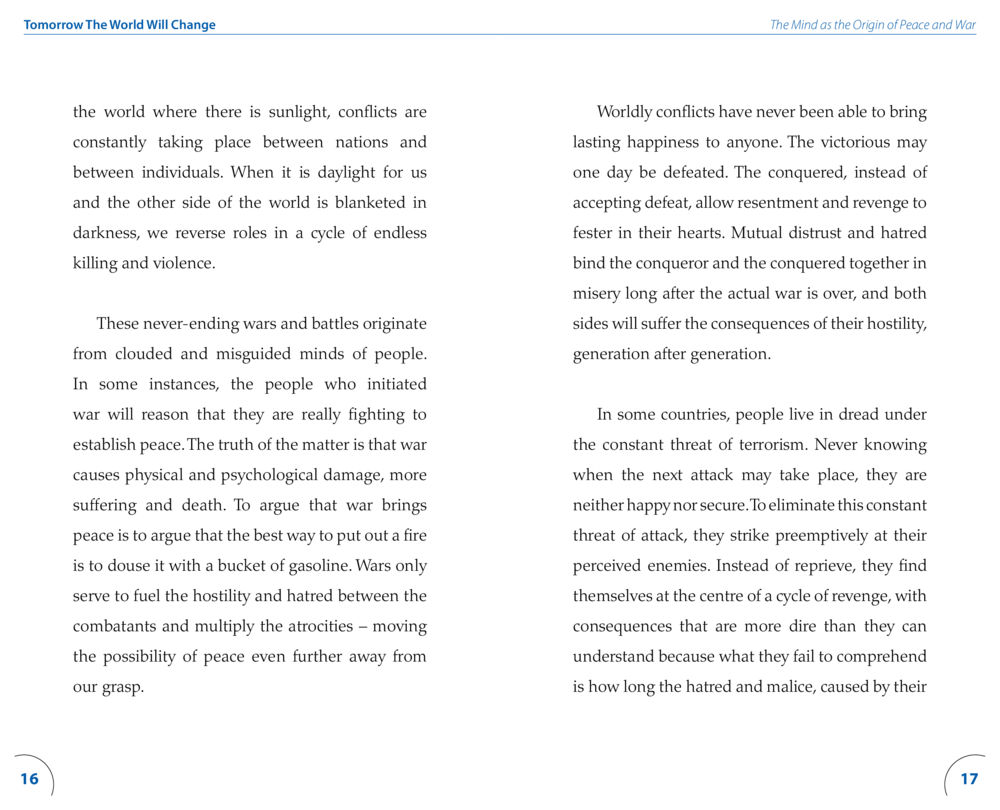The Cycle of Violence and Its Consequences : หน้า 10/50
Tomorrow The World Will Change : หน้า 10/50 An exploration of the never-ending cycle of conflict and violence in the world, examining the impact of war on individuals and nations.
0 ครั้ง

สรุปเนื้อหา
This text discusses the endless cycle of conflicts and wars driven by misguided intentions, highlighting how wars bring more suffering rather than peace. It emphasizes the psychological and social damages inflicted on both victors and vanquished. The narrative argues against the belief that war can lead to peace, noting that it only intensifies hostility and hatred. The cycle of violence can create a cycle of revenge, leading to enduring misery for generations. In some regions, the omnipresent threat of terrorism forces people into a preemptive stance, yet this approach fails to eliminate the deeper issues of hatred and malice stemming from conflict. The analysis concludes that lasting happiness cannot be achieved through violence or conflict, as these actions only bind individuals together in cycles of misery.
หัวข้อประเด็น
-endless conflicts
-the impact of war on society
-psychological effects of violence
-importance of understanding peace
-cycle of revenge
-terrorism and its consequences


















































